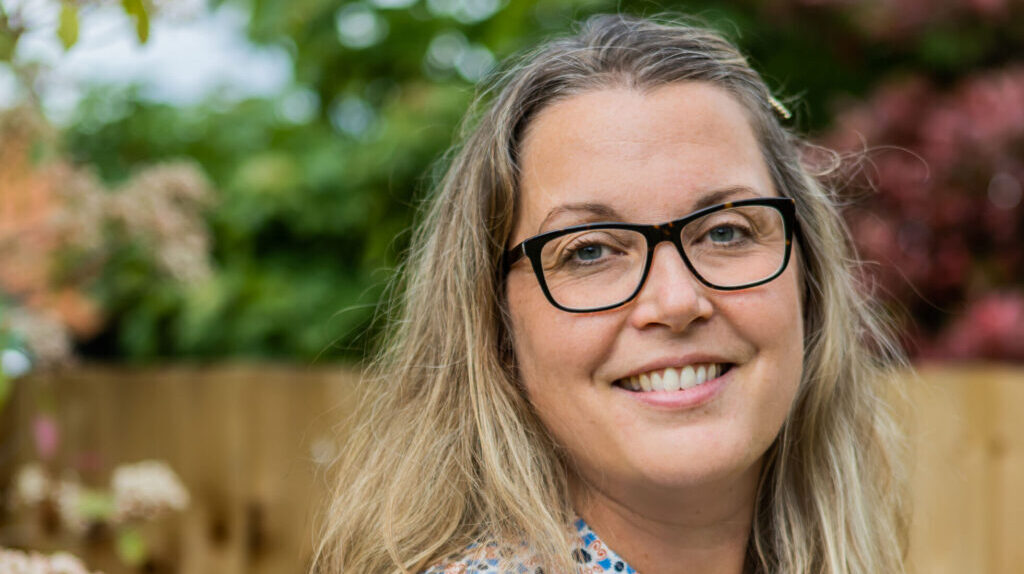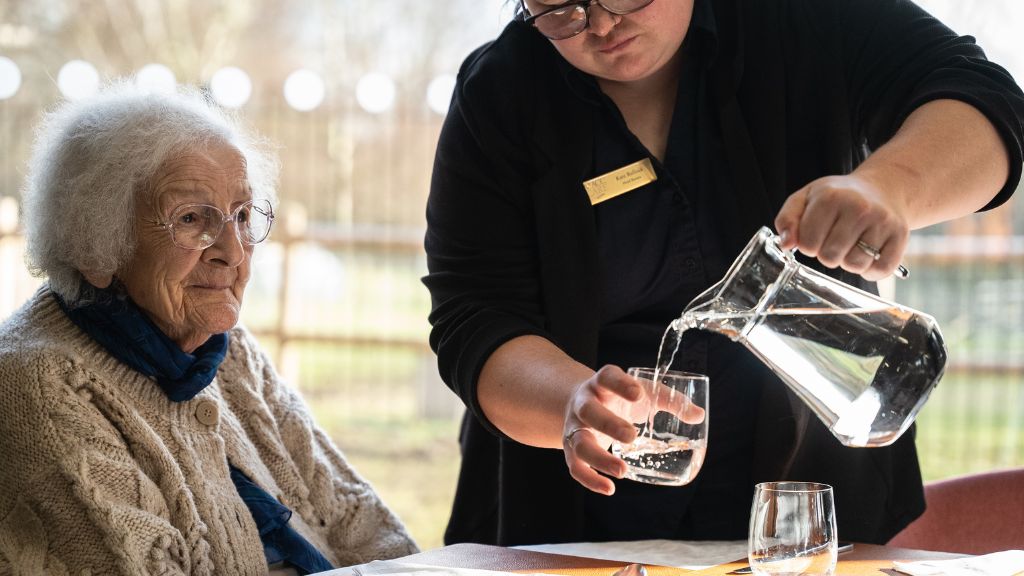Leader’s spotlight: The personal touch

Lee Peart talks to Stow Healthcare’s operations director Ruth French about how her hands-on leadership approach has been central to the success of the care home operator
Owned and managed by Ruth French and her brother, Roger Catchpole, premium care home operator, Stow Healthcare, has developed an enviable reputation as a serial awards winner in recent years and four of its eight care homes are now rated Outstanding.
And since launching in 2010, French and Catchpole have established Stow Healthcare as a turnaround specialist.
As the operational head of the business, French takes a real pride in leading from the front and stresses the importance of being seen in her eight care homes in Essex, Norfolk and Suffolk.
The latest homes to be added to its portfolio in 2022 were Horkseley Manor in Colchester, acquired from Larchwood Care, and Manson House, acquired from farming charity RABI.
French says her “on the ground” presence had been crucial in understanding the homes and integrating them with Stow Healthcare’s culture and practices.
“The homes were in different positions quality wise,” French explains. “Manson was rated Good and I have never had any concerns about the care being delivered, but financially it was in a really difficult position.
“Hawkesley had just been rated Requires Improvement and had several years of fluctuating leadership.”
French describes the homes as services needing “quite different approaches”.
“That’s my role on the ground which is going into a new acquisition and understanding what it is that we need to turn this home around,” she continues. “Very often the ingredients for baking that cake are very similar, so you might be putting slightly different toppings on it. We know what is needed to turn a home around now. We know all of the ingredients to do that.”
French says Stow Healthcare has become better and quicker over time at delivering turnarounds.
“What I bring to that is the boots on the ground of actually being in the homes physically, of talking to the staff and listening to them and understanding what’s working and what’s not working and putting in place the structures and helping them feel confident in those structures,” she explains.
Acknowledging some staff were more receptive to change than others, French says she has learnt to adapt her leadership style.
“Going into Manson House where they received a Good rating in their last inspection, their attitude was we don’t need to change we’ve already been rated Good,” she says. “I said ‘you have been rated Good but that was four years ago and I have four homes that are Outstanding. You have staff who have worked here for up to 40 years, why are you not Outstanding?’”
French says “elevating staff’s expectations of what they can achieve for themselves” was key to achieving an outstanding culture.
“I expect my homes to be Good in all areas even on their worst day,” she adds. “I know what it takes to make a home Outstanding. My job is to help staff understand that too and drive them towards that because I know if we can secure a Good for a home it means great things are happening every day.
“But to secure an Outstanding is something we should all be aiming towards because we know we are Good but this is the extra stuff that sprinkles on the top of the cake and that’s what all of us in social care should be pushing for because we need to be giving people a reason to get out of bed each day.”
French recounts feedback from a carer at one of her acquired homes to highlight how well its change of ownership and management style had been received.
“The carer said I have worked here 14 years under seven different companies and the first day they came they always say the kind of things you say, but you are the only one that has done what you said you would do,” French recalls. “That makes me really proud. She said she used to be embarrassed of where she worked. She would just say ‘I used to work in care’. She now says she loves telling people who she works for.”
French stresses the importance of a hands-on approach in getting to know staff and understanding what’s happening in their homes and providing an inspiring place for them to work.
“Continuing to create an inspiring place to work and giving people that motivation is really important,” she says. “I don’t get it right all the time. I have disgruntled staff like every care home company does, but if the vast majority of my staff feel proud of where they work, then I feel vindicated.
“It’s about knowing my staff and knowing what happens on the floor. It’s about helping people feel that sense of purpose because they are not working for a big faceless corporate, they are working for Stow Healthcare and they know they are going to see me at least once or twice a month in their home. I think it makes the whole system a lot more accountable.”
French says she was conscious as a female leader of the importance of having the ability to “own the room” and “be confident in the space that you take up in that room”.
“There is also something really valid about being able to own the room even when you are not physically present, and by this I mean that your team understands your values and your expectations, and they are able to deliver on those without you being present every day,” she adds. “This is obviously more important the bigger your company grows.
“It’s a concept that I think is really important for every senior leader to consider, that they are in essence, ‘leaving a visible footprint’ in their company so people have that to follow.”
Personal touch
French says a “slow, organic approach” was key to Stow Healthcare’s successful growth as a business.
“It means we have been able to keep a really personal approach to things, that staff who work with us at our head office get that ethos, and that staff in our homes get that ethos too,” she explains. “It’s that personal touch that matters.
“As leaders we have to take time to step away from our desks even when we don’t have time, because if we lose sight of why we are doing what we are doing that leads us to losing what makes us special.”
French adds that her being “on the floor” was key to Stow Healthcare’s success in telling its own stories. “I know those stories because I have seen them happen,” she notes.
French cites a recent encounter with a resident who had been at one of her care homes for a month after originally intending to just stay for two weeks following a stay in hospital.
“She was determined to go home and was determined she would not like it at the care home,” she says. “But she realised how safe she felt in the home and how safe the staff had made her feel and now didn’t want to go home. She knew this was the right place for her and she told me how the professional carpet cleaner had been in that morning and wanted to show me how beautiful it was and how gorgeous it smelt. We had a really nice chat.
“That stuff is really meaningful to me because it’s very easy when you are at the top of an organisation to be disengaged from what’s happening on the floor.”
In another example, French highlights a conversation with a resident’s family who had been amazed with the progress in their father’s health since moving into his care home in just two months.
“They told me he has been confined to a wheelchair but now he was walking around the garden 10 times a day to get himself back on his feet,” French recounts. “This is the stuff that’s really important and what helps us build case studies of our homes and put forward awards nominations. You can tell the difference between stories that have been put together by a marketing department and those that have been put together by people who know it because they have seen it.”
Stepping up to the plate
French, who is also a non-executive director of The Outstanding Society, says she has become increasingly confident at representing social care at a national level by being a spokesperson on key issues.
She recently published an article in Caring Times calling on the government to revisit its ban on overseas care worker dependants, which came into force on 11 March.
“It’s been really important to speak out about it,” French says. “I think it’s really important that more of us step up to the plate and get our voices out there in the media and I am really happy to do that now.”
Stow Healthcare has slashed its vacancies from 45 to eight since the beginning of 2023 thanks to the successful recruitment of overseas workers from a range of countries. This equates to a vacancy rate of only 1.3% across the group currently.
“It’s been a really positive story for us and some of our overseas workers’ dependants now work for us also, so in essence it’s buy one get one free,” French says. “That’s something that I don’t think the government has sufficiently taken into account. It’s a knee-jerk reaction in an election year and unfortunately people in social care are likely to be the ones who suffer from that decision.”
Taking risks
Looking ahead, French says social care needs to be far better at “letting people live their lives and take risks”.
“We as providers have become very scared,” she stresses. “We are scared of what regulators and safeguarding will say if things go wrong. We have to be much more upfront about managing people’s risks in a really proactive way that supports them to have a reason to get out of bed each day.
“We have to get a lot braver about stepping forward and enabling people to take risks and evidencing the positive impact that has had on their lives, whether it’s someone learning to do their own ironing or learning to shave themselves once again or being able to put their banana bread in the oven or make themselves a cup of tea.
“These are the small things that you take for granted in your own home and it feels like we take all of that away from them when they move into care because we are scared and this is something we need to get over and that’s what the new era of social care needs to look like.”




